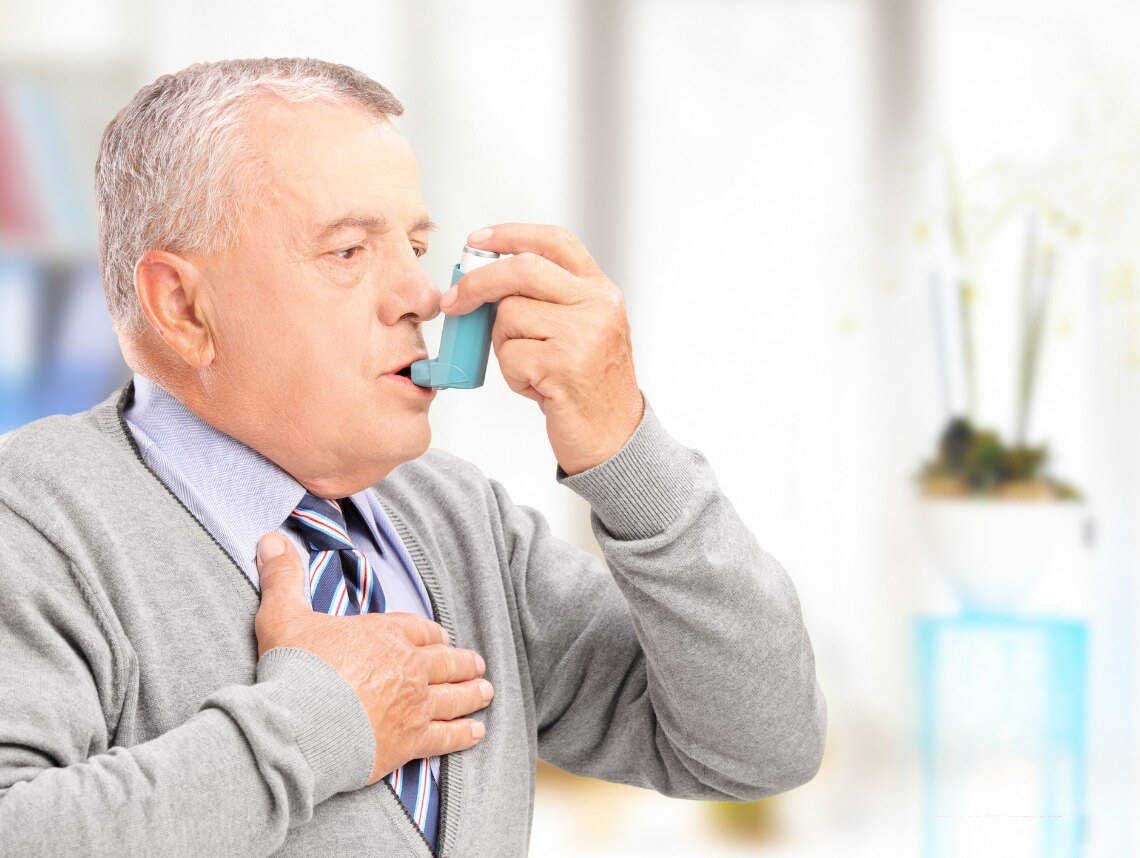Many people think of asthma as a disease that only children get. You might be surprised to learn, however, that many adults get diagnosed with asthma late in life, from age 65 to 80. When asthma presents itself at these ages, the symptoms are usually the same as they would be in younger people, but the consequences could be much more serious.
At this late age, respiratory failure is a real possibility. It is important to monitor the elderly loved one you care for if they have asthma so that you can work quickly to get them relief if they begin to have an asthma flare-up.
As the elderly care provider for an aging loved one who may or may not have asthma, it is good to know as much as you can about this lung disease so that you can better confront it. Let’s take a look at some common questions about asthma, as well as some facts that will help you to better understand it.
What is Asthma?
Asthma is a disease in which the lungs overreact to perceived threats and certain stimuli. Things such as allergens or exercising too hard can lead the muscles around the lungs to contract, leading to a tightness in the chest and swelling of the airway. This results in asthma symptoms like coughing, wheezing, and having trouble breathing.
How is asthma different in older adults than in children?
As mentioned in the introduction, asthma generally presents itself with the same symptoms in adults as it does in children. However, when an adult gets asthma, things can become more complicated.
Can asthma go into remission?
Yes. For example, when a child has asthma, the disease will often go into remission, and symptoms will disappear for years, and sometimes never come back at all. In adults, these periods of remission hardly ever happen, and asthma flare-ups can be more serious, because many elderly adults with asthma already have lung problems, and these attacks could lead to respiratory failure.
Risk Factors for Asthma in Older Adults
There are two main ways that an elderly adult becomes a high risk target for asthma.
Childhood Asthma: One of them is having had the illness as a child. The asthma might have gone into remission when they were younger, and it can come back again when they are older, sometimes with much more debilitating symptoms.
Sinus Disease: The second way is having had a sinus disease. Having a sinus disease, perhaps one related to the common cold, can lead to the development of asthma. Asthma that develops in this way tends to be very severe, as the lungs are already damaged.
Contact Care Options for Kids for Home Health Services
If your elderly loved one is having shortness of breath, trouble breathing, or a persistent cough, don’t discount asthma as a possibility. Asthma is manageable even in aging adults, so be sure to get them checked out by a doctor as soon as possible. The sooner you get a medical opinion and start treatment, the sooner your loved one will feel better, and breathe more easily.
If you or an aging loved one are considering hiring elderly care services, contact the caring staff at Care Options for Kids today. (888) 592-5855
Source
https://asthmaandallergies.org/asthma-allergies/asthma-in-older-adults/






